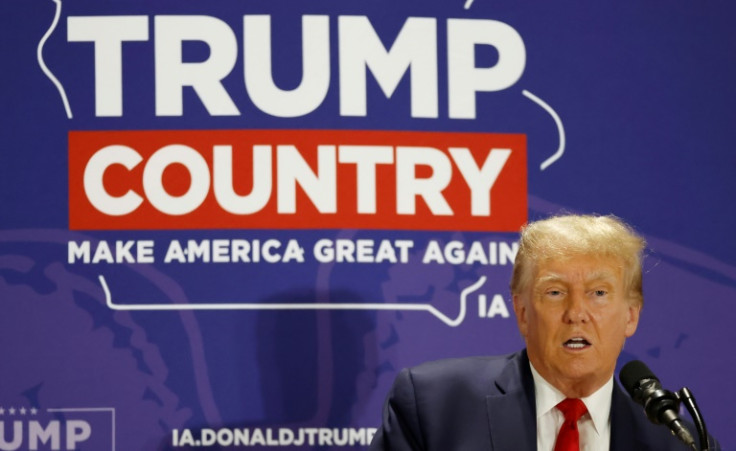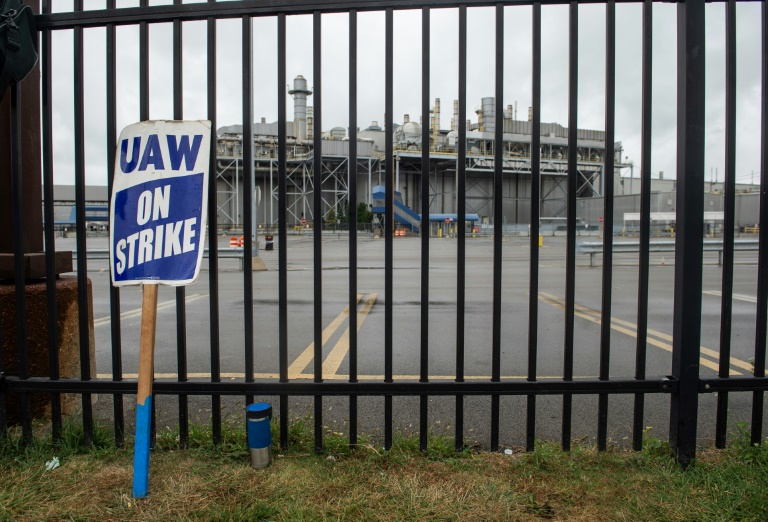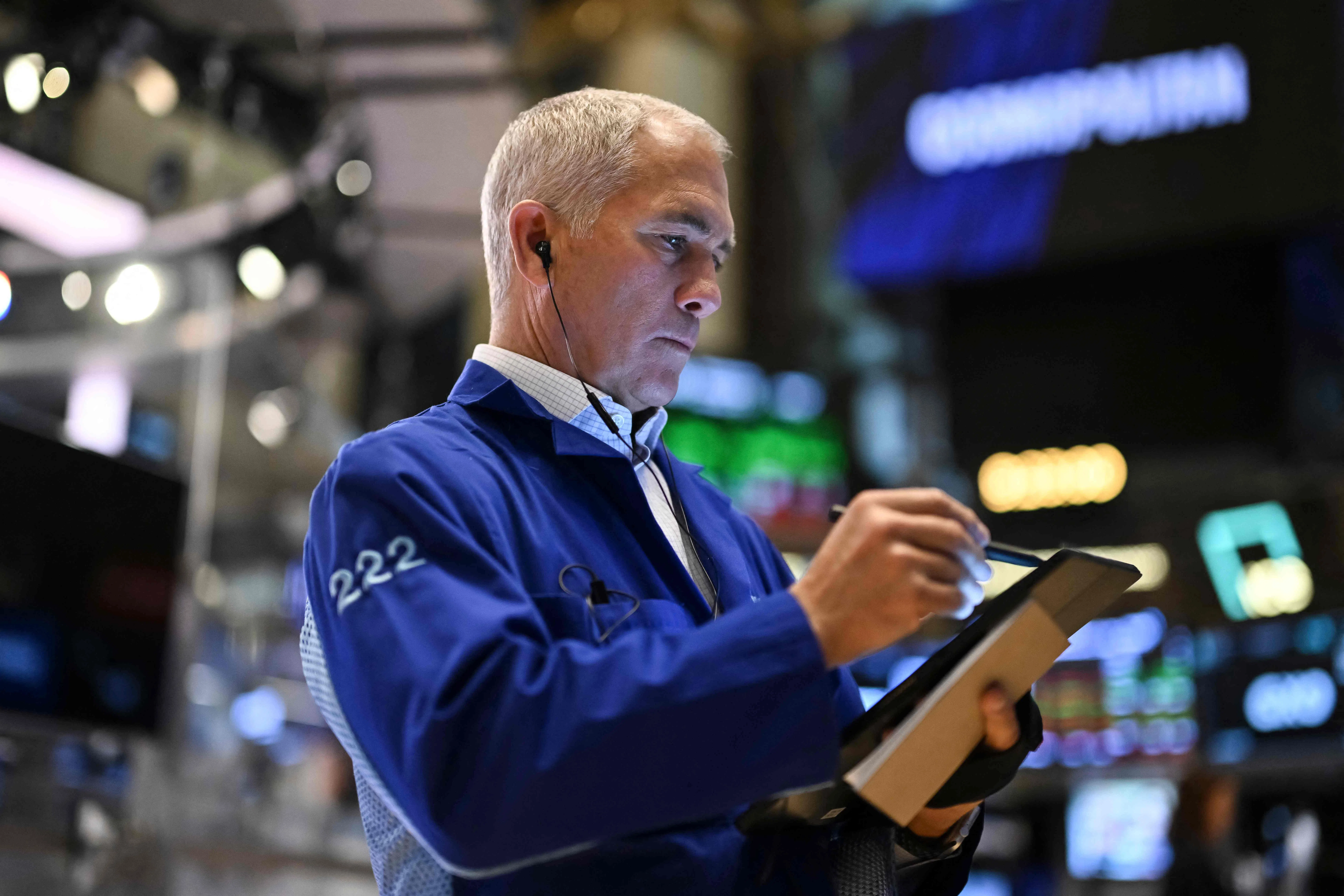In the politically crucial US state where workers make cars they could scarcely afford, Donald Trump and Joe Biden face a tough battle for blue-collar votes.
“It would be half my wage to buy a new car,” auto worker Curtis Cranford said after shaking the president’s hand on a picket line outside a General Motors plant in Belleville, Michigan on Tuesday.
The 66-year-old thanked Biden for coming — but said the Democrat’s plans to transition the US economy to electric cars is “going to cost jobs.”
And while Biden is wooing the unions, Cranford says he’ll probably vote Republican in next year’s presidential election anyway, as he “just can’t get behind, you know, immigration and abortion.”
That most likely means voting for Donald Trump, the scandal-plagued former president driving for a second shot at the White House in 2024 despite several criminal indictments.
Both Trump and Biden are visiting Michigan this week, in what is their first major skirmish of a long fight for voters in working-class swing states ahead of the November 2024 election.
Biden on Tuesday became the first sitting president to stand on a picket line, supporting calls by the United Auto Workers (UAW) union for the Big Three Detroit carmakers to raise wages.
And Trump is skipping a debate in California with his trailing Republican rivals on Wednesday to head instead for a small, non-union car parts factory on the other side of Detroit.
“I think this is a battle kind of over the hearts and minds of especially white working-class voters,” Jefferson Cowie, a professor at Vanderbilt University, said in an interview with NPR public radio.
“Whether they can be won over (on) race and nationalism and sort of the usual Trumpian rhetoric, or whether we’ll see a shift back toward the economic interest, the sort of Rooseveltian, New Deal vision that Biden has, I think, is really the centerpiece of this drama,” he added.
The 80-year-old Biden energetically cast himself as a friend of the workers on Tuesday, brandishing a megaphone with an American flag and donning a baseball cap with the UAW’s logo.
His brand of “Bidenomics” relies on a message of hope to revive America’s industrial “rust belt,” partly by focusing on environmentally friendly electric vehicles.
“It’s surreal,” said Carolyn Nippa, 51, who worked for auto giant GM for 26 years and never dreamed she would meet the president.
“I am not a Trump supporter. I’ll put it straight out there. I think he’s worked for the corporations and the billionaires out there,” added Nippa, who has worked at several different factories as they have closed down over the years.
Populist tycoon Trump, 77, who is battling multiple court proceedings, is relying on his usual message of fear and his own nationalistic promises of American revival.
“With Biden, it doesn’t matter what hourly wages they get, in three years there will be no autoworker jobs as they will all come out of China,” the ex-president said on his Truth Social network.
So who will win the workers’ votes next year?
“That’s a tough call,” sighs Kristy Zometsky, 44, who works at the GM plant like her father and uncle before her.
“Politics really isn’t part of the strike.”
Her worries are the same as almost everyone on the picket line: the cost-of-living crisis and salaries that don’t match, despite the sacrifices auto workers agreed to in 2009 when the car makers were in crisis.
It was at that time, during the global financial crisis, that Sarah Polk, wondered, “Who is really advocating for us?”
The 53-year-old single mother of three isn’t a car worker, but is affiliated with the UAW as an employee of Blue Cross Blue Shield health insurer in Detroit and so is on strike too.
“I think it’s just a photo op, both of them,” she said of the dueling visits by Biden and Trump, adding that her real concern was the fact that she is “always a month behind on my bills” and has no car.
Polk said she used to be a Democrat but was now an independent, as she liked presidential candidates such as the conspiracy-backing Robert F. Kennedy Jr. and author Marianne Williamson, but said they faced no chance against Biden for the Democratic nomination.
And who’ll win in 2024? “I don’t know,” she said with a shrug.
AFP

AFP







